“Is dementia inherited?” – This query delves into the genetics of dementia, raising important considerations about whether genes play a role in its transmission.
The majority of different types of dementia cannot be inherited by children and grandchildren. However, in some of the rarer types of dementia, scientists believe that there could be a strong genetic link. These are currently being researched.
Having said this, these cases are only a small number in the total cases of dementia. We look now at the different types of dementia asking the question is dementia inherited?
Is Dementia Inherited?

A little bit about genes…
The website dementia.org.au describes the role of genes in the human body:
The genetic material that we each inherit from our parents is packaged into structures called chromosomes.
We have 22 pairs of chromosomes plus two X chromosomes (women) or an X and Y chromosome (men).
Each chromosome contains thousands of genes like beads on a thread. Genes contain information – they are the blueprints for making a person.

Each gene has the instructions for making one tiny aspect of a person.
They are the basic units of heredity that allow specific characteristics (e.g. hair color, height, the tendency to develop diabetes in late life) to be passed from one generation to the next.
A mutation is a change in a gene. Some mutations are beneficial, but many are potentially harmful.
With regard to diseases, some genes are causative. E.g. if a person inherits a gene for a certain form of muscular dystrophy, they will certainly develop that illness in life.
Other genes are so called risk factor genes – they may not irrevocably lead to a person developing a certain illness such as diabetes, high blood pressure or Alzheimer’s disease. Some genes can make this more or less likely.
Source: Dementia.org.au
Alzheimer’s disease
According to Alzheimers.org.uk–
‘In the vast majority of cases (more than 99 in 100), Alzheimer’s disease is not inherited’.
The most important factor with Alzheimer’s is age. This is because the disease becomes more common in people who are in their late seventies and onwards.
If you have a grandparent with Alzheimer’s disease, this does not mean that you will be at any greater risk of developing it yourself.
- It has been proven that everyone can reduce the risk of developing Alzheimer’s by keeping your mind active, regularly exercising and eating a really healthy diet. It is also recommended that you drink moderate amounts of alcohol and cut out smoking.
Vascular dementia
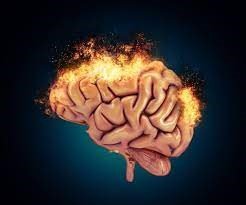 Is dementia inherited with Vascular dementia? Vascular dementia in itself is not inheritable. However, some of the underlying health problems that can contribute to this condition can be inherited. These include diabetes and high blood pressure.
Is dementia inherited with Vascular dementia? Vascular dementia in itself is not inheritable. However, some of the underlying health problems that can contribute to this condition can be inherited. These include diabetes and high blood pressure.
Research has shown that certain genes can increase the chances of developing vascular dementia. These genes can be passed from parent to child.
- Once again, a keyway to reduce the risk of developing vascular dementia is to embrace a healthy lifestyle with a good diet. Include plenty of leafy green vegetables along with plenty of regular exercise.
Frontotemporal dementia (also known as FTD or Pick’s disease)
This form of dementia is far less common than those listed above, but it is hereditary. This can cause great anxiety in families with a loved one with Frontotemporal dementia (FTD).
Although FTD is not always directly inherited, about one in ten people who develop FTD have at least one close relative with a form of dementia.
The relative could have, Alzheimer’s, FTD or motor neuron disease (amyotrophic lateral sclerosis, known as ALS).
Generally, if there is a relative with FTD or ALS, there is a greater chance of another family member developing what is known as ‘Familial FTD’ and most commonly, this is in its behavioral form rather than primary progressive aphasia type which is only inherited very rarely.
As there are a number of different genes that can cause familial FTD and each gene has a unique pattern of inheritance, it is best to seek the advice of a genetic specialist.
Is dementia inherited with Lewy bodies
Dementia with Lewy bodies (DLB) develops where there is an accumulation of abnormal proteins called ‘Lewy bodies’ in parts of the brain.
Currently, age is considered the greatest risk factor. Current research is being made to see if certain genes may also play a role.
Rare types of dementia that can be inherited
All of these types of dementia are very rare. However, if you are concerned that you or other family members could inherit a form of dementia, it is best to seek the advice of your family doctor and a referral to a genetic specialist.
Young-onset, familial Alzheimer’s disease
In a small number of Alzheimer’s cases, which the Canadian Health Institute puts at about 3%. This is the percentage of people aged 50-60 who can develop Alzheimer’s.
This is referred to as ‘Young Onset Alzheimer’s’ and is often caused by a faulty (mutated) gene inherited from their parents.
Very, very rarely, a person who is even younger, develops Alzheimer’s and this is nearly always caused by a faulty gene.
Huntingdon’s disease
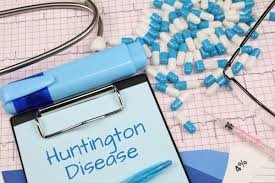 Huntington’s disease (HD) is inherited and causes nerve cells (known as neurons) in parts of the brain to gradually die.
Huntington’s disease (HD) is inherited and causes nerve cells (known as neurons) in parts of the brain to gradually die.
This disease attacks parts of the brain that help to control movement, as well as other areas. People with HD often develop uncontrollable movements and abnormal body positions.
The disease often affects behavior, cognitive skills and emotions. HD usually appears in middle-aged people. There is a 50% chance of HD being passed onto children if one parent has the faulty gene.
Familial Prion disease.
Approximately 10–15 percent of people with prion disease have a genetic form.
Genetic Creutzfeldt-Jakob disease (CJD) is a single gene disorder due to mutations in the prion gene (PRNP) on chromosome 20.
 Presently more than 20 alterations in the DNA sequence in the gene have been reported. The characteristics of the disease correlate with the different mutation types.
Presently more than 20 alterations in the DNA sequence in the gene have been reported. The characteristics of the disease correlate with the different mutation types.
Several other changes in the PRNP gene (called polymorphisms) do not cause prion diseases directly but may affect a person’s risk of developing these diseases or alter the course of the disease.
Genetic prion disease follows an autosomal dominant inheritance pattern. This means that if you carry a prion-disease-causing mutation, each of your children has a 50 percent (1 in 2) chance to inherit the same mutation.
Source: Memory.ucsf.edu
Final thoughts – Is Dementia Inherited?
When discussing – “is dementia inherited”, in the vast majority of cases it is not, but in the types that can be caused by a faulty gene there is a greater risk – especially as the faulty gene is always the dominant gene.
If you have concerns about anything you have read in this article, it is best to seek the advice of your family doctor.

![Is Dementia Inherited? [Know the Facts] Is dementia Inherited discussed](https://readementia.com/wp-content/uploads/2024/02/Is-dementia-Inherited-discussed-720x300.jpg)
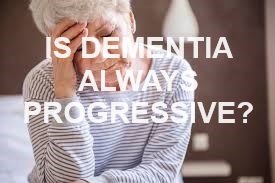

 Many doctors refer to three stages of dementia – early, middle and late or mild, moderate and severe. Those specializing in dementia have divided the progression of the disease into
Many doctors refer to three stages of dementia – early, middle and late or mild, moderate and severe. Those specializing in dementia have divided the progression of the disease into In the earliest stages of the disease, many people have no symptoms even though there are changes taking place in their brain. It may well be several years before they display signs and symptoms of the disease.
In the earliest stages of the disease, many people have no symptoms even though there are changes taking place in their brain. It may well be several years before they display signs and symptoms of the disease. As the disease progresses and your loved one reaches this stage it is viewed as the beginning of the later stage of dementia.
As the disease progresses and your loved one reaches this stage it is viewed as the beginning of the later stage of dementia. Medications
Medications Having a loved one with dementia takes its toll on everyone in the family, especially the main carer. If that is you, it is important you look after yourself too.
Having a loved one with dementia takes its toll on everyone in the family, especially the main carer. If that is you, it is important you look after yourself too.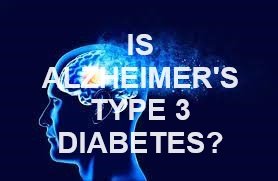

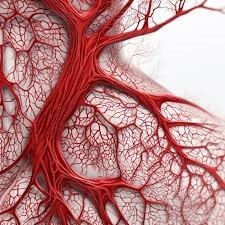 Scientists are currently studying a number of possible
Scientists are currently studying a number of possible  A paper published by the
A paper published by the  Certainly, it seems possible that researchers will find that families with history of type 2 diabetes could have a higher risk of developing Alzheimer’s disease or another type of dementia.
Certainly, it seems possible that researchers will find that families with history of type 2 diabetes could have a higher risk of developing Alzheimer’s disease or another type of dementia. Adopt a
Adopt a 


 It can be very beneficial to encourage your loved one to complete some of these balance exercises every day – or as often as they can comfortably during the week. Twice weekly being the minimum goal.
It can be very beneficial to encourage your loved one to complete some of these balance exercises every day – or as often as they can comfortably during the week. Twice weekly being the minimum goal. For this exercise, your loved one needs to stand straight with their feet slightly apart in front of a work surface or similar for support – if needed.
For this exercise, your loved one needs to stand straight with their feet slightly apart in front of a work surface or similar for support – if needed. Exercise brings many other benefits for dementia patients and should be continued for as long as possible. As well as preventing the mobility problems associated with inactivity, exercise can improve your loved one’s mood and reduce
Exercise brings many other benefits for dementia patients and should be continued for as long as possible. As well as preventing the mobility problems associated with inactivity, exercise can improve your loved one’s mood and reduce 




 Lighting is very important for someone with dementia as it helps to define the day from the night, and this helps to relieve their anxiety as dusk falls.
Lighting is very important for someone with dementia as it helps to define the day from the night, and this helps to relieve their anxiety as dusk falls. It is important to keep your loved one engaged, but they may well need help to remember faces and names.
It is important to keep your loved one engaged, but they may well need help to remember faces and names. As your loved one’s
As your loved one’s ![What is Pseudodementia? [Diagnosis, Treatment] What is Pseudodementia? [Diagnosis, Treatment]](https://readementia.com/wp-content/uploads/2023/09/What-is-pseudodementia.jpg)

 Pseudodementia can certainly appear very similar to dementia, but importantly, is not caused by neurological degradation. Commonly it has its roots in a mood-related condition such as
Pseudodementia can certainly appear very similar to dementia, but importantly, is not caused by neurological degradation. Commonly it has its roots in a mood-related condition such as  Not surprisingly,
Not surprisingly,  Once the doctor has made the diagnosis of pseudodementia, they will be keen to start treatment to address the underlying cause which is usually depression.
Once the doctor has made the diagnosis of pseudodementia, they will be keen to start treatment to address the underlying cause which is usually depression.


 They have not retained the fact that you asked them to stay in the house or car.
They have not retained the fact that you asked them to stay in the house or car.






 There are a number of practical things that should be put in place to ensure that it is difficult for your loved one to wander.
There are a number of practical things that should be put in place to ensure that it is difficult for your loved one to wander. It is quite a challenge to keep your loved one engaged throughout the day and certainly requires plenty of good planning. However, keeping them occupied will help them to feel calmer and
It is quite a challenge to keep your loved one engaged throughout the day and certainly requires plenty of good planning. However, keeping them occupied will help them to feel calmer and 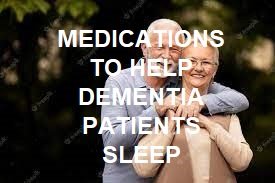






 Many dementia patients find it hard to settle down to sleep at night. If this is the case with your loved one, it is important not to give them any caffeine drinks (coffee, tea, cola etc.) for several hours prior to bedtime.
Many dementia patients find it hard to settle down to sleep at night. If this is the case with your loved one, it is important not to give them any caffeine drinks (coffee, tea, cola etc.) for several hours prior to bedtime.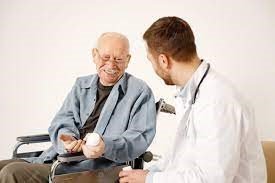 In the first instance, it is definitely best to use the non-drug approach to resolving sleep issues in your loved one.
In the first instance, it is definitely best to use the non-drug approach to resolving sleep issues in your loved one.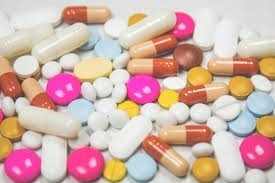 Unfortunately, if none of the ‘natural remedies’ work and if you as the carer are getting too tired and unable to fulfil your daytime role for your loved one, it is time to speak with your doctor.
Unfortunately, if none of the ‘natural remedies’ work and if you as the carer are getting too tired and unable to fulfil your daytime role for your loved one, it is time to speak with your doctor. You may find that your doctor will not prescribe medication for
You may find that your doctor will not prescribe medication for ![Helping Alzheimer’s Patients Sleep [Solutions] Helping Alzheimer's Patients Sleep Easily](https://readementia.com/wp-content/uploads/2023/08/Helping-Alzheimers-Patients-Sleep.jpg)

 If your loved one is
If your loved one is  ● Try and establish a routine and keep mealtimes and bedtime at the same times each day. Make sure the evening meal is at least four hours before bedtime.
● Try and establish a routine and keep mealtimes and bedtime at the same times each day. Make sure the evening meal is at least four hours before bedtime. Sometimes if all the above suggestions have failed, medication for Helping Alzheimer’s patients sleep will be prescribed.
Sometimes if all the above suggestions have failed, medication for Helping Alzheimer’s patients sleep will be prescribed.

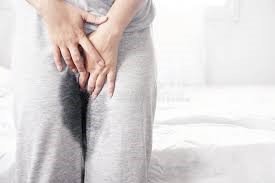 This is the most common type of incontinence and ranges from small, occasional leaks to continuing to pee after leaving the toilet or the total emptying of the bladder away from the toilet..
This is the most common type of incontinence and ranges from small, occasional leaks to continuing to pee after leaving the toilet or the total emptying of the bladder away from the toilet..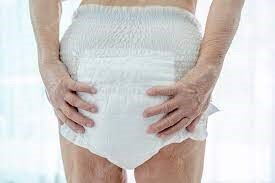 They may not recognise the sensation of needing the toilet in adequate time.
They may not recognise the sensation of needing the toilet in adequate time. Even if you have been living where you are for a number of years, it is important to make the toilet easily identifiable and easy to use for your loved one.
Even if you have been living where you are for a number of years, it is important to make the toilet easily identifiable and easy to use for your loved one.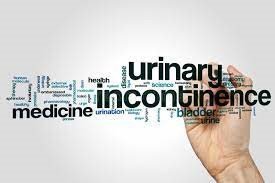 This is a difficult situation for you both to deal with. Your loved one will feel that they are not in control of their body and that they are losing their dignity.
This is a difficult situation for you both to deal with. Your loved one will feel that they are not in control of their body and that they are losing their dignity. Following an accident, it is important that your loved one cleans themselves properly and you may well need to help them. Remind them gently to wash their hands well.
Following an accident, it is important that your loved one cleans themselves properly and you may well need to help them. Remind them gently to wash their hands well.